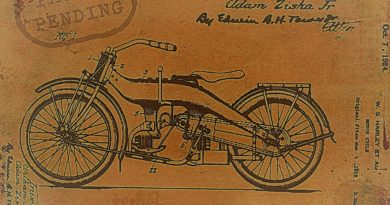Compulsory Licensing in India
Compulsory Licensing in India
Compulsory licensing is a vexed issue. There is an inherent tussle between the rights of patent holders and grant of compulsory licensing. On conclusion of the GATT Uruguay Round in 1994, regulation of intellectual property laws was introduced in the trade law.
A compulsory license can be defined as a authorization given by the Government to a person for the exploitation of a patent without the consent of the patent holder. This obviously works against the interest of the patent holder but compulsory licenses are considered as a necessity in certain cases like cases of national emergency, health crisis and like. Even TRIPS allows flexibilities in the form of compulsory licenses o n the fulfillment of certain prerequisite conditions. Indian Patent Act has many sections devoted to the grant of compulsory licenses. Laws have been detailed in the Act on this issue. It gives a discretionary powers on the Controller under certain circumstances to decide on applications of compulsory licenses. Detailed procedure is also engrafted in the Act. It seems that most of the provisions of our patent act relating to compulsory licenses conform to the TRIPS agreement.
In keeping with the waiver of the requirement of domestic production under Article 31(f) of TRIPS in the August 30, 2003 decision, Section 92A of Indian Patents Act,1970 has been enacted.
GROUNDS FOR GRANT OF COMPULSORY LICENSE
Compulsory Licenses are primarily granted under the following categories-
PATENT MISUSE
Section 84 of the Act provides that at any time after the expiration of three years from the date of the grant of a patent, any person interested may make an application to the Controller for grant of compulsory licence
on patent on any of the following grounds, namely:—
- that the reasonable requirements of the public with respect to the patented invention have not been satisfied, or
- that the patented invention is not available to the public at a reasonably affordable price, or
- that the patented invention is not worked in the territory of India.
Under section 84(6) the Controller has been mandated to take into account,—
- the nature of the invention, the time which has elapsed since the sealing of the patent and the measures already taken by the patentee or any licensee to make full use of the invention;
- the ability of the applicant to work the invention to the public advantage;
- the capacity of the applicant to undertake the risk in providing capital and working the invention, if the application were granted;
- as to whether the applicant has made efforts to obtain a licence from the patentee on reasonable terms and conditions and such efforts have not been successful within a reasonable period as the Controller may deem fit: PROVIDED that this clause shall not be applicable in case of national emergency or other circumstances of extreme urgency or in case of public non-commercial use or on establishment of a ground of anti-competitive practices adopted by the patentee.
On the ‘reasonable requirements of the public’ section 84(7) of the Act provides that it will be deemed not to have been satisfied—
(a) if, by reason of the refusal of the patentee to grant a licence or licences on reasonable terms,—
(i) an existing trade or industry or the development thereof or the establishment of any new trade or industry in India or the trade or industry in India or the trade or industry of any person or class of persons trading or manufacturing in India is prejudiced; or
(ii) the demand for the patented article has not been met to an adequate extent or on reasonable terms; or
(iii) a market for export of the patented article manufactured in India is not being supplied or developed; or
(iv) the establishment or development of commercial activities in India is prejudiced; or
(b) if, by reason of conditions imposed by the patentee upon the grant of licences under the patent or upon the purchase, hire or use of the patented article or process, the manufacture, use or sale of materials not protected by the patent, or the establishment or development of any trade or industry in India, is prejudiced; or
(c) if the patentee imposes a condition upon the grant of licences under the patent to provide exclusive grant back, prevention to challenges to the validity of patent or coercive package licensing; or
(d) if the patented invention is not being worked in the territory of India on a commercial scale to an adequate extent or is not being so worked to the fullest extent that is reasonably practicable; or
(e) if the working of the patented invention in the territory of India on a commercial scale is being prevented or hindered by the importation from abroad of the patented article by—
(i) the patentee or persons claiming under him; or
(ii) persons directly or indirectly purchasing from him; or
(iii) other persons against whom the patentee is not taking or has not taken proceedings for infringement.
Even after a compulsory licence has been granted, the Central Government or any person interested may, after the expiration of two years from the date of the order granting the first compulsory licence, apply to the Controller for an order revoking the patent on the ground that the patented invention has not been worked in the territory of India or that reasonable
requirements of the public with respect to the patented invention have not been satisfied or that the patented invention is not available to the public at a reasonably affordable price.[1]
The Controller, if satisfied that the reasonable requirements of the public with respect to the patented invention have not been satisfied or that patented invention has not been worked in the territory of India or that the patented invention is not available to the public at a reasonably affordable price, may make an order revoking the patent.
PUBLIC INTEREST
Section 92 of the Act deals with cases of national emergency, circumstances of extreme urgency and case of public non commercial use. It gives power to the Central Government to make a declaration that such circumstances exist by a notification in the official gazette. After such notification any person interested can apply for a compulsory license and the Controller in such case Controller shall grant to the applicant a licence under the patent on such terms and conditions as he thinks fit. In settling the terms and conditions of a licence granted the Controller shall endeavour to secure that the articles manufactured under the patent shall be available to the public at the lowest prices consistent with the patentees deriving a reasonable advantage from their patent rights.
Subsection 3 of the same section provides that the Controller has discretion of whether to follow the standard procedure enumerated in section 87 regarding with applications under compulsory licenceing. It further provides that in cases of public health crises, relating to Acquired Immuno Deficiency Syndrome, human immune deficiency virus, tuberculosis, malaria or other epidemics the Controller shall not apply section 87 procedure requirements. In such case the Controller shall, as soon as may be practicable, inform the patentee of the patent relating to the application for such non-application of section 87.
This section conforms to Article 31 of the TRIPs Agreement, the relevant part of which is as follows:
Other Use Without Authorization of the Right Holder:
Where the law of a Member allows for other use of the subject matter of a patent without the authorization of the right holder, including use by the government or third parties authorized by the government, the following provisions shall be respected:
………….
(b) such use may only be permitted if, prior to such use, the proposed user has made efforts to obtain authorization from the right holder on reasonable commercial terms and conditions and that such efforts have not been successful within a reasonable period of time. This requirement may be waived by a Member in the case of a national emergency or other circumstances of extreme urgency or in cases of public non-commercial use. In situations of national emergency or other circumstances of extreme urgency, the right holder shall, nevertheless, be notified as soon as reasonably practicable. In the case of public non-commercial use, where the government or contractor, without making a patent search, knows or has demonstrable grounds to know that a valid patent is or will be used by or for the government, the right holder shall be informed promptly;
COMPULSORY LICENCE FOR EXPORTS OF PHARMACEUTICAL PRODUCTS
In keeping with the new waiver of the requirement of domestic production under TRIPS Article 31(f), Section 92A of the Act has been introduced by the 2005 amendment. It provides:
- Compulsory licence shall be available for manufacture and export of patented pharmaceutical product to any country having insufficient or no manufacturing capacity in the pharmaceutical sector for the concerned product to address public health problems, provided compulsory licence has been granted by such country or such country has, by notification or otherwise, allowed importation of the patented pharmaceutical products from India.
- The Controller shall, on receipt of an application in the prescribed manner, grant a compulsory licence solely for manufacture and export of the concerned pharmaceutical product to such country under such terms and conditions as may be specified and published by him.
- The provisions of sub-sections (1) and (2) shall be without prejudice to the extent to which pharmaceutical products produced under a compulsory licence can be exported under any other provision of this Act.
Explanation added to the section says that the term ‘pharmaceutical products’ used in the section means any patented product, or product manufactured through a patented process, of the pharmaceutical sector needed to address public health problems and shall be inclusive of ingredients necessary for their manufacture and diagnostic kits required for their use.
LICENSING OF RELATED PATENTS
Section 91 of the Patent Act provides for compulsory licensing of related patents. Starting with ‘Notwithstanding anything contained in the other provisions of this Chapter’, it provides that any time after the sealing of a patent, any person who has the right to work any other patented invention either as patentee or as licensee thereof, exclusive or otherwise, may apply to the Controller for the grant of a licence of the first mentioned patent on the ground that he is prevented or hindered without such licence from working the other invention efficiently or to the best advantage possible.
The Controller is mandated to consider the following before passing any order under this section —
…that the applicant is able and willing to grant, or procure the grant to the ; patentee and his licensees if they so desire, of a licence in respect of the other invention on reasonable terms; and
…. that the other invention has made a substantial contribution to the establishment or development of commercial or industrial activities in the territory of India.
TERMS AND CONDITIONS OF COMPULSORY LICENCES
Section 90 of the Act deals with the terms and conditions of compulsory licences. It provides that Controller shall try to secure the following:
- that the royalty and other remuneration, if any, reserved to the patentee or other person beneficially entitled to the patent, is reasonable, having regard to the nature of the invention, the expenditure incurred by the patentee in making the invention or in developing it and obtaining a patent and keeping it in force and other relevant factors;
- that the patented invention is worked to the fullest extent by the person to whom the licence is granted and with reasonable profit to him;
- that the patented articles are made available to the public at reasonably affordable prices;
- that the licence granted is a non-exclusive licence;
- that the right of the licensee is non-assignable;
- that the licence is for the balance term of the patent unless a shorter term is consistent with public interest;
- that the licence is granted with a predominant purpose of supply in the Indian market and that the licensee may also export the patented product, if need be in accordance with the provisions of sub-clause (iii) of clause (a) of sub-section (7) of section 84;
- that in the case of semi-conductor technology, the licence granted is to work the invention for public non-commercial use;
- that in case the licence is granted to remedy a practice determined after judicial or administrative process to be anti-competitive, the licensee shall be permitted to export the patented product, if need be.
PROCEDURE FOR GRANT OF COMPULSORY LICENCES:
Section 87 of the Act provides that where the Controller is satisfied, upon consideration of an application under section 84, or section 85, that a prima facie case has been made out for the making of an order, he shall direct the applicant to serve copies of the application upon the patentee and any other person appearing from the register to be interested in the patent in respect of which the application is made, and 1[shall publish the application in the Official journal.
The patentee or any other person desiring to oppose the application may, within such time as may be prescribed or within such further time as the Controller may on application (made either before or after the expiration of the prescribed time) allow, give to the Controller notice of opposition.
Any such notice of opposition shall contain a statement setting out the grounds on which the application is opposed.
Where any such notice of opposition is duly given, the Controller shall notify the applicant, and shall give to the applicant and the opponent an opportunity to be heard before deciding the case.
TERMINATION OF COMPULSORY LICENCE
Section 94 of the Act deals with termination of compulsory licence. It provides that on an application made by the patentee or any other person deriving title or interest in the patent, a compulsory licence granted under section 84 may be terminated by the Controller, if and when the circumstances that gave rise to the grant thereof no longer exist and such circumstances are unlikely to recur. Proviso attached to the section enables the holder of the compulsory licence a right to object to such termination.
CASE LAW
Natco Case
Natco pharma applied for compulsory licence for the manufacture and exportation of Roche’s patented anti cancer drug Erlonitib to Nepal. It also applied for the issue of a second compulsory licensefor manufacture and export of Sunitnib. Natco also filed an interlocutory application before the controller of patent asserting that since the application for grant of compulsory license was made by them under Section 92A, the patentees should not be provided with an opportunity of being heard. The matter came up for hearing before the Controller. After hearing both Natco and Roche it was held that there was nothing in Section 92A which specifically prohibited an adjudicating authority from affording the patentees an opportunity of being heard. He further held that in addition to it being fair that the party whose interest could be harmed is heard, the submission of such party could be of extreme value in arriving at a decision regarding the terms and conditions of the grant of compulsory license.
The case of Rwanda
On July 19, 2007, Rwanda became the first country to notify the WTO of their intention to use the Decision. Also in this case the supplier was the Canadian company Apotex and the product was the same combination product to treat HIV/AIDS that Apotex had developed for the MSF. Rwanda reserved the right to modify the amount, as it was impossible to predict needs with certainty. Rwanda did not intend to issue a CL – instead they would use the LDC transition period and not enforce any patent rights that might pertain to the product. Both the affected patent holders have since agreed to allow Apotex’s manufacture of their products. One of them has agreed to waive their royalty as well as allow the licence for the length of the patent and allow it to be extended to other WTO developing countries besides Rwanda. They set as conditions that the product is differentiated, properly notified and approved by the drug regulatory authority, all measures that are required in the Canadian implementation of the Decision. The other company refrained from royalties only if Apotex would supply the product on a non-profit basis. The Canadian Intellectual Property Office granted the licence on 19 September 2007 and subsequently notified it to the WTO. The license allowed manufacture and delivery of 15.6 million pills of the requested product to Rwandan health authorities. According to one source it will be enough to treat 21 000 patients for one year.The price offered by the Canadian company – whether or not it contains a profit margin – seems to be higher than the price offered for the same combination in India. There are reports that the Indian companies sell at almost one third of the price of Apotex. The Rwandan government may be rethinking their use of the Canadian system on this ground. According to a Rwanda newspaper, the responsible minister said that there was no finalised deal with Apotex, and that they will buy from the cheapest source, as long as the medicines are of the same quality.[2]
The case of Ghana
In collaboration with two Canadian NGOs, Ghana expressed an interest to use the Canadian law to import generics, both for itself and as a regional importer to the benefit of the ECOWAS countries. Ghana had issued a regular CL in 2005, and thus had experience with the instrument. The Ghanaian law was revised, but there was never a notification to use the system.[3]
The case of Médecins Sans Frontières
The MSF attempted in 2004 to place an order with the Canadian company Apotex to manufacture a combination pill of three HIV/AIDS medicines protected by Canadian patents. Apotex applied for a CL for export under the Canadian law to be able to process the order. Two years later, in August 2006, the process was still not finished and no pills had been exported. The MSF argued that the experience showed that the Decision is unworkable andnot the “expeditious solution” mandated in the Doha Declaration. While the process went on, two Indian companies received WHO prequalification and approval by the US government respectively for copies of the same combination medicine. MSF started buying these copies
instead and abandoned the effort in Canada.[4]
The Patents Act, 1970 and the Patents Rules, 2003 have many provisions related to the issuance of the Compulsory Licences. Yet if the Government feels that there remains some provisions which are ambiguous and requires clarification, then Government can bring suitable guidelines for the removal of doubts. Since there is a Manual of Patent Practice and Procedures, it will be advisable if the guidelines are added to the Manual. Even though discretionary power has been vested on the Controller regarding issuance of Compulsory License, this discretion is not unfettered one but is exercised judicially. Any such guideline issued may only be for clarification of an ambiguous aspect of the law. It need not be confined only to the aspect of the royalty payment. It should also be kept in mind that the judicial discretion of the Controller to make suitable orders on a case to case basis should not be taken away or limited by issuing too many guidelines.
With the introduction of product patent regime in 2005, concerns of compulsory licensing specially in relation to pharma products have become more important. Concerns of public interest need to be addressed. One of the main concern is that patent protection for pharmaceutical products may result in higher prices of medicines and consequent adverse effect on the public. Thus it is strongly recommended that compulsory licenses be issued whenever pressing circumstances demand. This will work as a deterrent against misuse of patent rights by the patent holders
[1] Section 85
[2] The WTO Decision on Compulsory Licensing, 2008, Kommerskollegium, National Board of Trade
[3] The WTO Decision on Compulsory Licensing, 2008, Kommerskollegium, National Board of Trade
[4] The WTO Decision on Compulsory Licensing, 2008, Kommerskollegium, National Board of Trade



